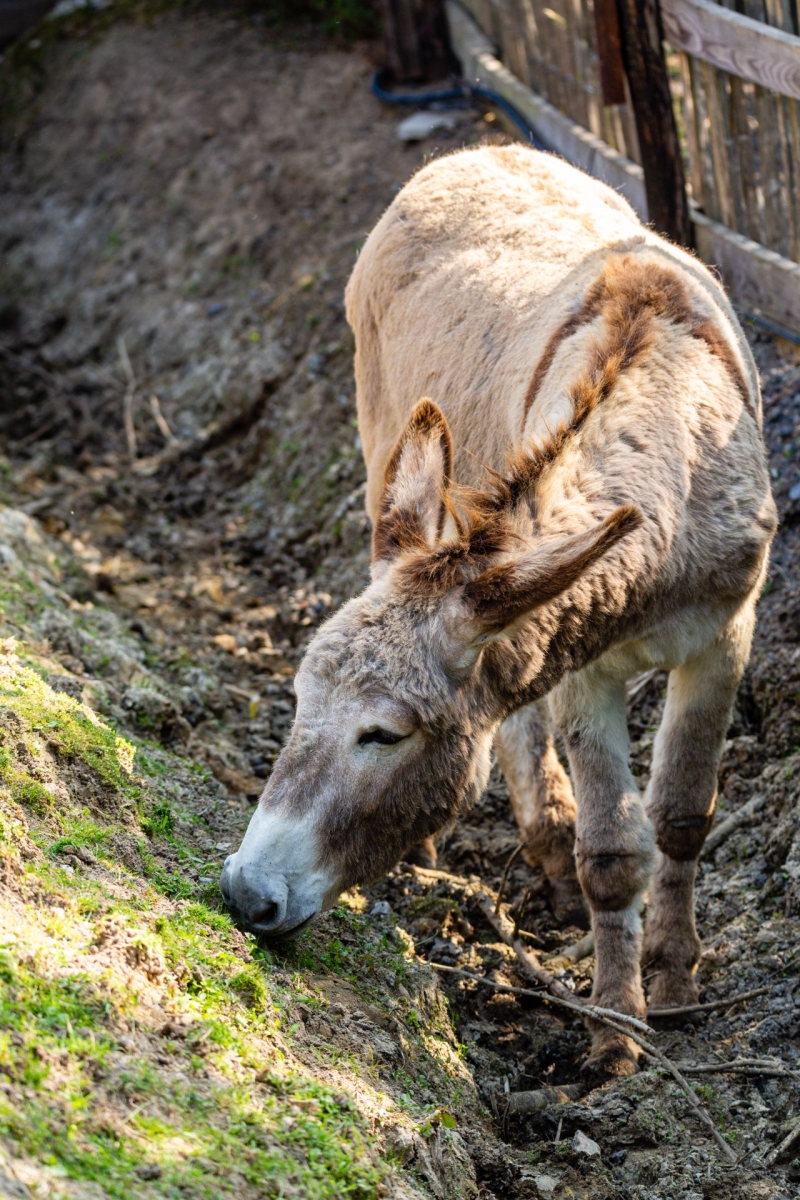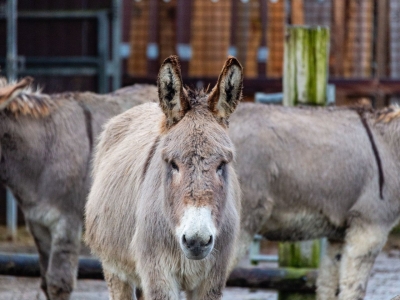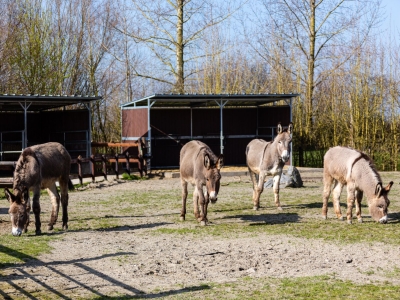Amiatina donkey Equus asinus
Animals in our sanctuary
Speedy
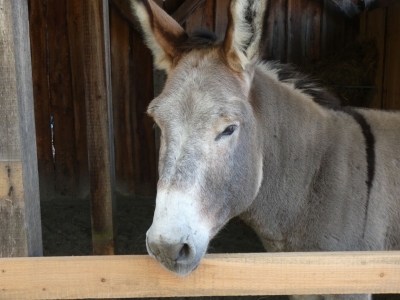
Speedy and four other Amiatina donkeys come from a private owner who, after her divorce, was no longer able to take care of the animals financially. The animals originally come from Italy where they were used as natural grazers. After the First World War, this particular donkey species were on the verge of extinction and although their numbers are gradually increasing, they are still classified as endangered. When the couple moved back to Belgium in 2011 they took the donkeys with them. The oldest animals of the group could stay with the private individual, but unfortunately for the younger animals they had to find a new home. Speedy and his family can now enjoy a new home in De Zonnegloed.
Serena
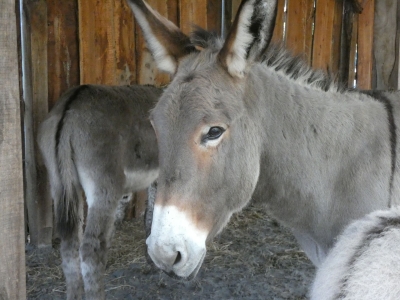
Serena and four other Amiatina donkeys come from a private owner who, after her divorce, was no longer able to take care of the animals financially. The animals originally come from Italy where they were used as natural grazers. After the First World War, this particular donkey species were on the verge of extinction and although their numbers are gradually increasing, they are still classified as endangered. When the couple moved back to Belgium in 2011 they took the donkeys with them. The oldest animals of the group could stay with the private individual, but unfortunately for the younger animals they had to find a new home. Serena and her family can now enjoy a new home in De Zonnegloed.
Santoro
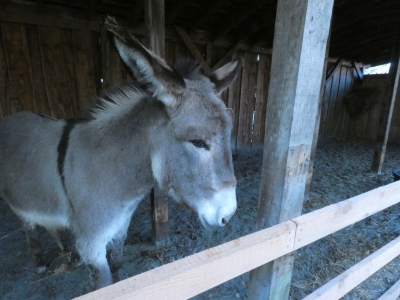
Santoro and four other Amiatina donkeys come from a private owner who, after her divorce, was no longer able to take care of the animals financially. The animals originally come from Italy where they were used as natural grazers. After the First World War, this particular donkey species were on the verge of extinction and although their numbers are gradually increasing, they are still classified as endangered. When the couple moved back to Belgium in 2011 they took the donkeys with them. The oldest animals of the group could stay with the private individual, but unfortunately for the younger animals they had to find a new home. Now Santoro and his parents, brother and sister can enjoy a new home in De Zonnegloed.
Sirius
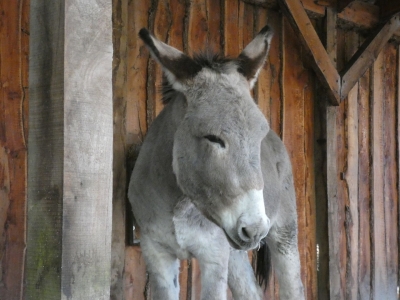
Sirius and four other Amiatina donkeys come from a private owner who, after her divorce, was no longer able to take care of the animals financially. The animals originally come from Italy where they were used as natural grazers. After the First World War, this particular donkey species were on the verge of extinction and although their numbers are gradually increasing, they are still classified as endangered. When the couple moved back to Belgium in 2011 they took the donkeys with them. The oldest animals of the group could stay with the private individual, but unfortunately for the younger animals they had to find a new home. Now Sirius and his parents, brother and sister can enjoy a new home in De Zonnegloed.
Siena
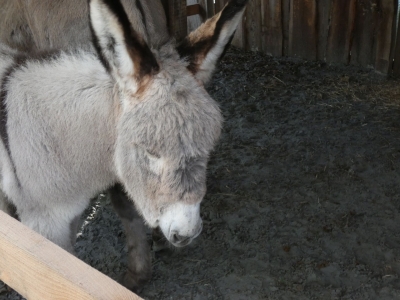
Siena and four other Amiatina donkeys come from a private owner who, after her divorce, was no longer able to take care of the animals financially. The animals originally come from Italy where they were used as natural grazers. After the First World War, this particular donkey species were on the verge of extinction and although their numbers are gradually increasing, they are still classified as endangered. When the couple moved back to Belgium in 2011 they took the donkeys with them. The oldest animals of the group could stay with the private individual, but unfortunately for the younger animals they had to find a new home. Siena can now enjoy a new home in De Zonnegloed with her parents and two brothers.
Where does it feel at its best?
The amiatina donkey originates from the province of Grosseto (which is Tuscany, Italy). Nowadays it also lives in Liguaria (north-west Italy) and Campania (west Italy).
What does it like to eat?
A donkey mainly needs roughage (straw, hay and grass), occasionally supplemented with roots and apple.
Fun fact:
The Amiatina donkey is a bit larger than the other, more common, donkey species.
This donkey species is rather self-reliant and can therefore be used as a 'wild' grazer in nature reserves.
Adopt this Amiatina donkey


